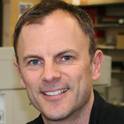| July 2021 - Present | Chair, Genetics and Development Division, Lawson Health Research Institute ‐ Children's Health Research Institute (CHRI) | |
|
|
||
| November 2008 - Present | Professor, Western University ‐ Department of Physiology and Pharmacology | |
|
|
||
Disciplines
Research Interests
Professional Service and Affiliations
| 2021 - Present | Chair, Genetics & Development Division, CHRI |
